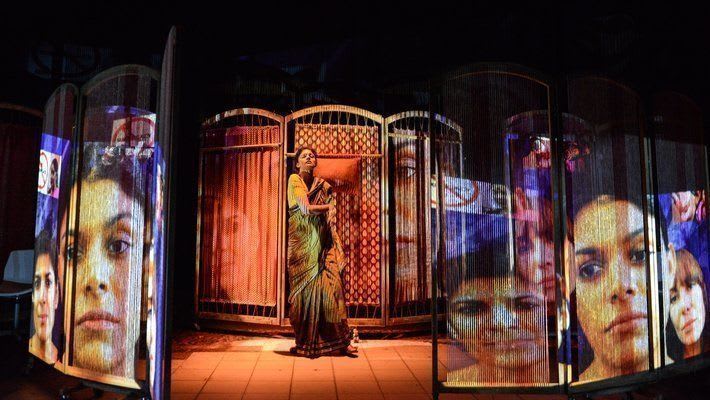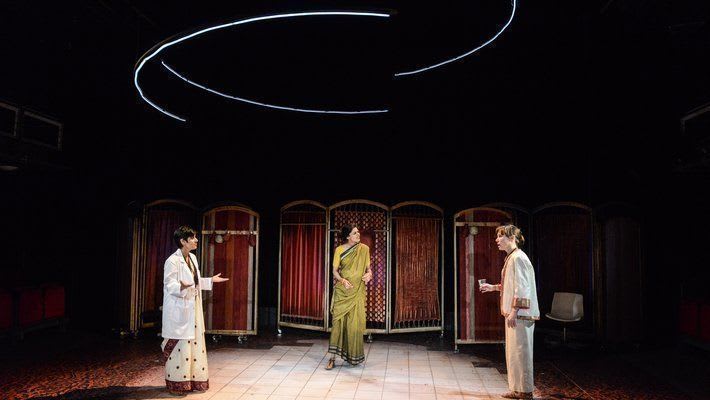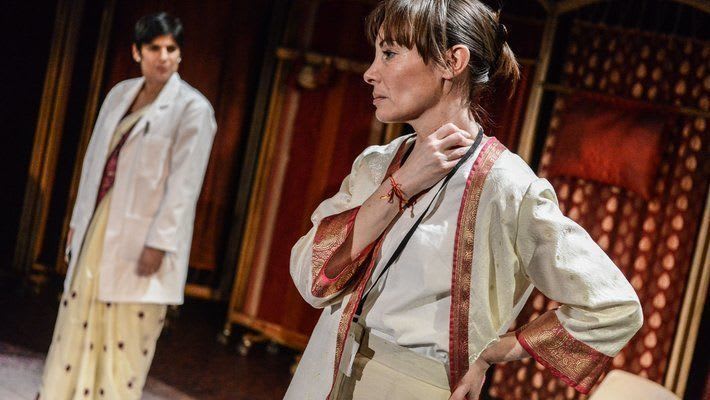After years of failed IVF treatment, the death of her husband and a legal battle to gain the right to use her dead husband’s sperm, professional British woman Eva Roe arrives at an Indian fertility clinic in Gujarat that is arranging a surrogate mother to bear her a child.
Only that morning, advertising agency executive Eva has seen an item in the English language newspaper reporting government plans to introduce a ban on commercial surrogacy. The clinic’s owner, Dr Gupta, says it won’t happen—but it does. In fact that legislation was introduced after Satinder Kaur Chohan had started writing this play and dramatically changed its balance for it highlighted the way in which India’s surrogate “industry” was creating an income source for impoverished Indian women.
This is not a deep discussion of the ethics of IVF treatment and surrogacy but a look at what is at stake for the three women involved. Dr Gupta runs her clinic as a business, but one that helps both foreign women who can afford its fees and Indian women who not only get paid but receive education and other help while contracted to it.
Eva Roe, perhaps a too obvious name for a woman running out of eggs, is a widow desperate for motherhood and to have her late husband’s child. Surrogate Aditi is desperate too, for money: since their father was killed by a drunk driver, she’s been raising her two daughters alone on what she can earn as a milkmaid.
The script gives only fragmentary background information about these lives away from the clinic but Gina Isaac lets us glimpse the organised, successful Eva as well as the woman obsessed by maternity who is near to cracking point. As Arditi, Ulrika Krishnamurti, gets the chance to show a character developing. She is never seen in her own environment but, over the nine months of her pregnancy, her learning of some English and interaction with Eva see increased self confidence and awareness of her own rights, partly through the prominent role she plays in the campaign the three women get involved in against the ban halting surrogacy.
Dr Gupta is at times duplicitous, covering up things she would rather Eva not know, but is this perhaps partly the Indian manner of wanting to keep people happy, to tell them what they want to hear? Syreeta Kumar gives us her hard, money-conscious practicality, but she is after all running a business, and from beneath the professional façade there are signs of compassion emerging, though she sometimes seems coldly commercial.
Even when things are in turmoil she calls it her, “business. No different to buying a pair of trainers.” But is it her own actions she is trying to justify or is this an accusation aimed at the West, at the people who live comfortable lives based on exploiting the poor of the third world?
Director Katie Posner dispenses with precise locations; designer Lydia Denno provides a set of gauze screens that can surround or reveal as though round a hospital bed, while beyond a central circle the tiled floor is spattered with blood spots. As they are moved around between scenes, a montage of images is projected upon them while the dramatic music and political voices of Arun Ghosh’s sound design build excitement.
It is the emotional intensity of its performance that makes this such a watchable piece of theatre, though the dance-like sequences for Arditi need to be made more effective. It presents situations rather than arguments but it does underline the fact that the advantages of surrogacy aren’t just one-sided and, though concentrating on a personal story, it can represent a much broader situation.
“Made in India,” claims Arditi of the child she is carrying; as well as being about surrogacy, this is also a metaphor for the way the wealthy West uses the poor people of India and elsewhere to produce its goods and the worldwide exploitation of cheap labour.


